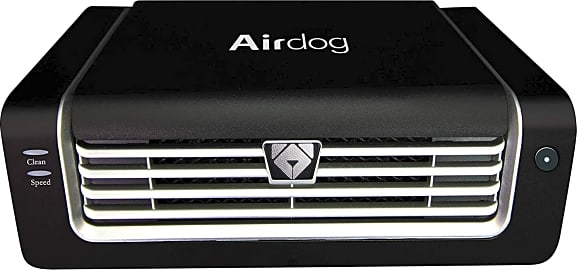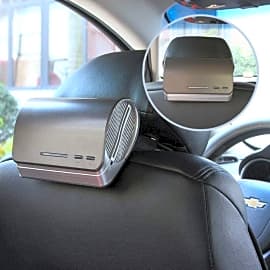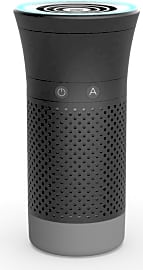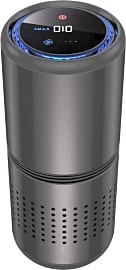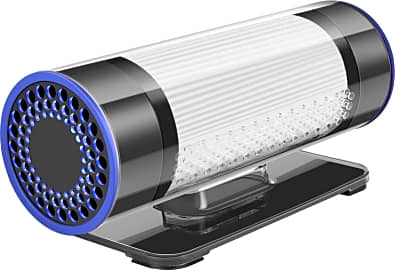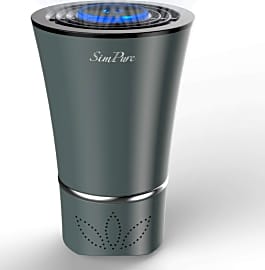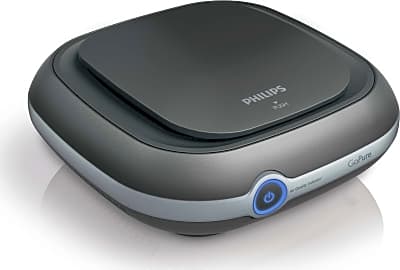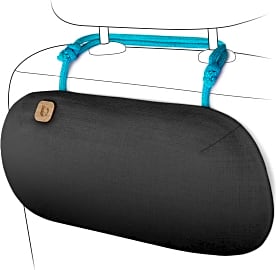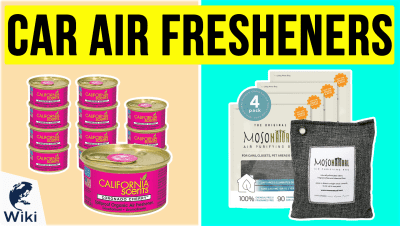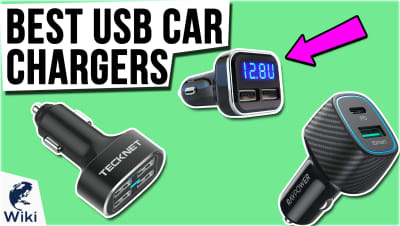The 10 Best Car Air Purifiers

This wiki has been updated 38 times since it was first published in October of 2015. If you sneeze endlessly when you drive because of your pollen allergy, or the smell of the fast food you ate on the go tends to linger, then pick up one of these portable car air purifiers. Our selections for this category come in at a variety of price points, eliminate pesky bacteria, allergens and strong odors, and will have you and your passengers breathing easy in no time. When users buy our independently chosen editorial picks, we may earn commissions to help fund the Wiki.
Editor's Notes
May 07, 2020:
Between widespread availability issues and a large influx of exciting new options for this category, this round of updates saw these rankings virtually rebuilt from the ground up, with the only previous selections remaining being the Purggo Odor Eliminator and Philips GoPure 200. Some of our new picks this time around include the Autowit Fresh 2 – a compact option with three-stage filtration that has a built-in humidifier, the Airdog Tesla – a pricey model with washable filters that cleans up to 14,800 liters of air per hour, and the Wynd Plus – an app-controlled offering with an onboard air-quality sensor.
A few things to think about for this category:
Filtration: While all of our selections for this category employ some type of filtration system, the respective design of each system can vary considerably, so pay attention to make sure you know what you’re paying for.
Three-stage systems, like the one in the Autowit Fresh 2, typically put a pre-filter – that catches large particles and stray hair – in front of a carbon filter – which is responsible for reducing odors – in front of a HEPA filter – that takes care of fine particulate matter. Four-stage systems like the SimPure HC3 have the benefit of an additional antibacterial filter, and five-stage systems like the Zendora Smoke Remover incorporate an ionizer on top of the first four filters. The Airdog Tesla gets a special mention for being the only unit we ranked that uses a sustainable washable-filter system.
Control: While all of our selections are outfitted with simple, intuitive control systems, a few of our choices are equipped with extra bells and whistles that we thought might be worth mentioning. The Airdog Tesla is equipped with smart start technology that fires the machine up when you start driving, and the Wynd Essential and Wynd Plus can both be controlled via the company’s companion app. The Mili F1 has a built-in motion sensor that activates or deactivates the device when you wave your hand over top of it, which is a fun feature, but it can be problematic. Some users have noted that when this unit’s setup in a cupholder, it sometimes leads to accidentally powering down the device when they reach over it to change gears.
Efficiency: When shopping for larger air purifiers, one of the prominent differentiators company’s like to present is their unit’s clean air delivery rate – which, as the name implies, describes how quickly a given machine works, expressed in cubic feet per minute – so, I was surprised to see that there wasn’t much of that talk in this category. The Queenty 5214 is one of the only models that readily lists its clean air delivery rate, which is 50 cubic feet per minute.
My suspicion is that since operating volume is considered to be so important, perhaps manufacturers have leaned toward low-powered, whisper-quiet motors for this category, in lieu of powerful, loud alternatives that might lead to better clean air delivery rates – and therefore are less inclined to display their relatively low delivery rates. Or, perhaps because these machines are designed to handle such small environments, their delivery rate is simply thought to be less relevant. That being said, they can vary considerably – with the Wynd Plus rated to clean 32,400 liters of air per hour while the Airdog Tesla does only 14,800 – so, with whatever information is made available to you, use your best judgement to pick a productive model within your budget.
Car Air Purifiers Versus Home Air Purifiers
Some models are USB rechargeable, so a driver can plug them directly into their cigarette lighter and draw power from the car.
Car air purifiers perform similarly to the devices promised to remove allergens from the air, (also known as aeroallergens), mask odors, and kill bacteria inside your home. The purifiers discussed here are designed with the unique environment of a vehicle in mind.
Some models are USB rechargeable, so a driver can plug them directly into their cigarette lighter and draw power from the car. These varieties can have additional USB ports built into them, allowing the user to conveniently charge other devices, like smartphones and tablets all while they’re driving. Many models are small and portable, so they can easily sit on a dashboard, attach to a visor, or strap onto the rear of a seat head. Some even fit into a car’s cupholder, thus eliminating the need for mounting hardware.
Because a vehicle is such a confined space, it’s important to remove dangerous toxins from the air as quickly and regularly as possible. Asthma sufferers greatly benefit from car air purifiers because they cannot control their environment when they are driving around as they can when they’re stationary in their own home.
These beneficial devices remove known asthma triggers like dust particles and cigarette smoke. Smokers who don’t want the strong odor of cigarettes filling up their vehicle will benefit from the use of car air purifiers.
Some filters are also designed to eliminate the harmful gases one encounters on congested highways and busy city roads. Some purifiers contain filters that can work consistently for up to eight months, without needing to be changed, as well as various fan speeds for those times when toxins are particularly strong.
The Air And Your Health
Air pollution is one of the top ten health risks for human beings in the world. Poor air quality can affect one’s cardiovascular system in addition to irritating respiratory conditions like asthma.
People who are regularly exposed to mold are at a higher risk of developing bronchitis.
The long-term effects of regular exposure to bad air can’t be felt immediately, but when they do surface, they can be deadly. One of the leading pollutants people should be concerned about, and that air purifiers reduce, is ground-level ozone. This is formed when volatile organic compounds and oxides of nitrogen interact with the sun’s ultraviolet rays.
Another toxin that air purifiers work to eliminate is mold. Exposure to mold can cause nasal and sinus congestion, difficulty breathing, chest tightness, throat irritation, and coughing and sneezing fits. People who are regularly exposed to mold are at a higher risk of developing bronchitis.
People who live in highly polluted areas are especially at risk for devastating health conditions, which is why in some parts of China, residents are advised to wear masks outside and on some days, to not even leave their homes. Long-term exposure to poor quality air can cause a decrease in lung function, and possibly cancer.
Particulate matter is another common pollutant. This is a complex mixture of metals, sulfates, soot, dust, water, smoke, tire rubber and other matter. Research has shown that regular exposure to particulate matter can lead to chronic respiratory disease in children, irregular heartbeat, lung disease and heart attacks. People who already suffer from lung or heart disease or cancer are at a heightened risk for premature death if they inhale particulate matter often.
The Most Polluted Cities In The World
Delhi, India is one of the most polluted cities on earth, based on the annual mean concentration of particulate matter. Air experts state that the city faces a dangerous combination of poor energy sources, overpopulation and bad weather conditions. Studies suggest the number of cars in the city will grow from 4.6 million in 2010 to 26 million in 2030, which will make pollution much worse. Delhi is a landlocked city, so it has a limited number of ways to flush out polluted air.
An enormous wetland in the area called Hamoun, which is drying up, is the source of the problem.
Zabol, Iran suffers from relentless dust storms every summer. An enormous wetland in the area called Hamoun, which is drying up, is the source of the problem. Hamoun used to provide a natural cooling effect for the area, but now that it’s gone, temperatures can rise to 104 degrees in the summer, and it is creating a tremendous amount of dust storms. This weather phenomenon is so regular and problematic that locals gave it the nickname “120 days of wind.” The storms can be suffocating, forcing residents to wear masks outdoors.
Saudi Arabia has had several cities consistently appear on the world’s most polluted list. The region is one of the most prolific car manufacturers in the world, so what makes its economy strong makes its air very weak. Riyadh is one of the most polluted cities in Saudi Arabia and the 4th in the world. On top of traffic congestion, the city sits in the Arabian desert so, like Delhi, it has no way to circulate polluted air out and clean air in.


